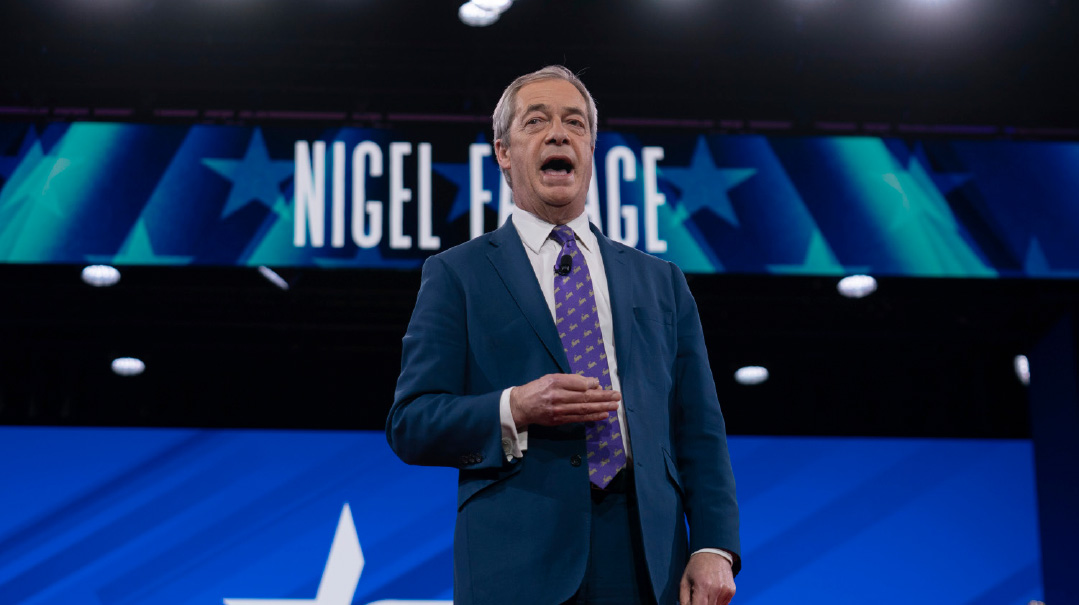Britain at the Ballots — 6 Things to Know
| May 28, 2024Keir Starmer looks set to enter Downing Street — is his party de-Corbynized?

Photo: AP Images
The UK goes to the polls on July 4, after a snap decision made by beleaguered Conservative prime minister Rishi Sunak.
The picture is unrecognizable from 2019, when Boris Johnson led the Tories to a landslide victory, defeating hard-left Labour leader Jeremy Corbyn, and promising to deliver Brexit. Boris fell on the sword of party mismanagement and self-inflicted scandals, to be replaced by the disastrous and short-lived Liz Truss. Panicking Conservative MPs installed Rishi Sunak to steady the ship, but their poll ratings continued southwards, and they now trail Labour by 27 points, according to YouGov.
Under the more moderate Keir Starmer, Labour have moved to the center on policy, removed Corbynites from influential positions, and look poised to capitalize on an overwhelming sentiment that it’s time for a change after 14 years of Conservative government and five prime ministers. But has Labour done enough to reassure voters, particularly in areas like anti-Semitism, defense, and the economy?
They need the largest swing in the party’s century-old history just to get a majority of one. Their 10.2% swing in 1997 overturned a ten-seat majority and gifted them a landslide; this year they need a 12.7% swing to overturn the Conservatives’ 45-seat majority. A Labour victory would be the largest electoral upset since 1945. A Conservative victory, a vanishingly unlikely prospect, would take them into an unprecedented fifth term. Here are six things to know about the upcoming contest.
1: Coalition Dissolution
Boris Johnson’s electoral coalition in 2019 was united in its desire to see Brexit delivered after years of deadlock and Jeremy Corbyn defeated. Now, with Brexit a non-issue and Corbyn no longer even a Labour MP, both ends of their coalition have become disaffected with the Tories.
Affluent, socially liberal voters in southern England are unhappy with the high tax burden and the Conservatives’ stance on social and cultural issues, and they’re tending toward the center-left Liberal Democrats. Meanwhile, Boris’s emphasis on green issues and relaxed attitude to immigration, combined with crumbling post-Covid public services, has turned off working-class, culturally conservative Northern “Red Wall” former Labour voters, many of whom intend to vote for populist insurgent Reform.
Polling shows if the charismatic anti-EU campaigner Nigel Farage returned to leading Reform, they could take 15%to 20% of the vote, which would drive the Conservatives close to extinction. There’s been an exodus of donors to Labour and three defections of Conservative MPs to Labour, two in recent weeks.
2: Why the Wonder Boy Went Wrong
The 44-year-old Sunak was a popular chancellor during Covid, when he dished out billions in support, but by the time he became PM in 2022, he was tainted by the revelation that his billionaire wife was using a tax loophole. The country was in the grip of an inflation-driven cost-of-living crisis, which voters viewed him as too out-of-touch to manage. Sunak’s unusually swift ascent to high office meant he lacked political experience; he’s made some avoidable misjudgments on personnel and zigzagged between different strategies in desperate attempts to turn things around.
The government has also failed to deliver on its promises: state-run National Health Service waiting lists are at a record high, Sunak hasn’t “stopped the boats” (illegal migrants arriving via the Channel, which is driving the surge in Reform’s vote, similar to what is happening with the Republican vote in the US), and voters feel worse off. Just 8% of people, mostly in southern England, told YouGov earlier this year that they feel better off.
Despite his formidable intelligence, personal integrity, and punishing work ethic, Sunak has failed to restore his party’s fortunes, and he leads the party into an election with a favorability rating of minus-51.
3: Brand Rehabilitation
Voters are no longer frightened of Labour, as they were in 2019, and believe that after the Conservatives’ turbulent tenure, Labour surely can’t be any worse. In polls, Labour leads on who is most trusted to handle a range of issues, from the NHS to immigration and the economy. Starmer has successfully “de-Corbynified” the party, purging Corbynite shadow ministers and party officials. He’s junked most of the left-wing manifesto he ran on as a leadership contender to win over the party membership, and while he hasn’t specified much in the way of concrete policies, he’s made it clear Labour are at the center on most politically salient issues like the economy, immigration, crime, and strikes.
4: Anti-Semitism, Adios?
Starmer’s expended considerable efforts to rid the party of Corbyn-era anti-Semitism, though the Gaza conflict has given voice to the more hostile left, renewing fears in the Jewish community that while the leader has changed, the party itself retains anti-Semitic elements that could mean trouble in a Labour government.
At a recent Labour event designed to reassure the Jewish community, Jewish Chronicle columnist Melanie Philips drew applause when she said, “If the majority of [Labour] members support the [Palestinian] cause, you have a structural fundamental problem.”
However, polling shows that most seats with large Jewish populations are predicted either to remain, or swing to, Labour, including Finchley and Golders Green, Barnet, and Bury, where the Tory MP defected to Labour in 2022.
5: Starmer Stirs up Apathy
Voters don’t fear Keir Starmer, but they neither like nor trust him; they find him dislikeable by 43% to 29% in YouGov’s latest tracker (though it’s a lot better than Sunak’s 54% to 27%). Voters describe him as dull, lacking an alternative vision, and unprincipled. “Cringy car salesman” and “worthy supply teacher” are some of the more vivid, if unkind, comparisons that focus group participants have made. Labour’s proposals for government are heavy on rhetoric but light on policy detail, which gives downbeat Conservative strategists hope that when it comes to it, the public will stick with the Tories for lack of a substantial alternative.
6: Broken Britain
There is an overwhelming sense of exhaustion and despair among the electorate, particularly about public services. A recent Times survey revealed only one in four are satisfied with the NHS, despite billions being thrown at it by consecutive administrations. There is a Covid-induced courts backlog, the police are too overstretched to respond to low-level crime, and police chiefs are being told to make fewer arrests because the prisons are full.
Though voters primarily blame the Conservative government and the 2010–15 spending squeeze, which saw departmental budgets slashed, some of these problems are institutional, with no obvious quick-fire solutions. The reluctance of thousands of departmental officials to return to the office hasn’t helped; according to the government’s own Office for National Statistics, public sector productivity fell 2.3% since 2023 and is 6.8% below pre-pandemic levels.
The next six weeks will reveal whether the public trust Labour enough to solve the state’s deep-seated problems, or conclude that they don’t yet have the answers and it’s best to stick with the devil they know.
(Originally featured in Mishpacha, Issue 1013)
Oops! We could not locate your form.







